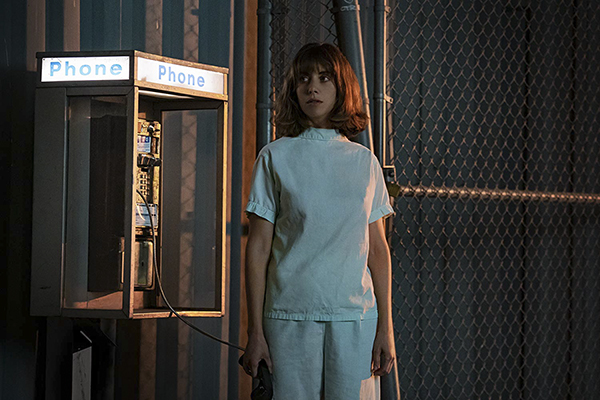As the credits roll on Jeff Baena’s “Horse Girl,” it becomes very apparent that all the film did was showcase a girl struggling with mental illness and then end her story in a worse state than she began. Now streaming on Netflix following its Jan. 27 Sundance premiere, “Horse Girl” follows a woman named Sarah whose experience of unusual lucid dreams lead her to question the limits of reality.
As Sarah (Alison Brie) begins to ponder the existence of aliens, clones and dimensional traveling, the world around her begins to close in. Brie, who also co-wrote the film, portrays an authentic and soft-spoken character through her dialect and physical acting. Her unfiltered and vulnerable performance allows for strong audience sympathy. Though Brie portrays the character effectively, the writing itself does not do her story justice.
The biggest issue with the story featured in “Horse Girl” is its muddled portrayal of mental illness. While the plot starts off with a tame inclusion of these elements, it becomes clear about midway through that Sarah’s mental struggles are the basis of her character and focus of the story, rather than simply an element of the plot. As Sarah hallucinates supernatural occurrences, the people around her experience life as it usually occurs, leaving them questioning her sanity. The audience is also left questioning the source of her hallucinations — mental illness or alien interference. Neither is ever confirmed.
Sarah’s grapple with mental illness is a crutch in telling a story that is intended to be artsy and ambiguous. Her hallucinations and episodes of confusion are played for shock value and mesmerizing visuals. The struggle itself is used as a possible red herring against the existence of the supernatural. This element is poorly utilized, portraying a stereotyped view of what it means to be mentally ill and experience symptoms which alter perceptions of reality. It serves not to tell a convincing story, but to mask an uninteresting one in pretentious self-importance.
The film’s side characters and technical aspects are the only sufficient aspects of the film. Played by Debby Ryan, Molly Shannon and John Reynolds, Sarah’s various acquaintances offer empathy in the beginning, but as her narrative intensifies, many of these standout characters are thrown to the side. The editing, cinematography and soundtrack all work together to create a quick-moving and visually engaging experience. The neutral low-contrast lighting grounds the story in reality, while the eerie camera techniques convey a sense of uncanniness.
“Horse Girl” succeeds in its overall visual style and performances, but its unethical portrayal and inclusion of mental illness feels very out of line and romanticized leaving viewers unsatisfied, exploited and uncomfortable.
2/5




















